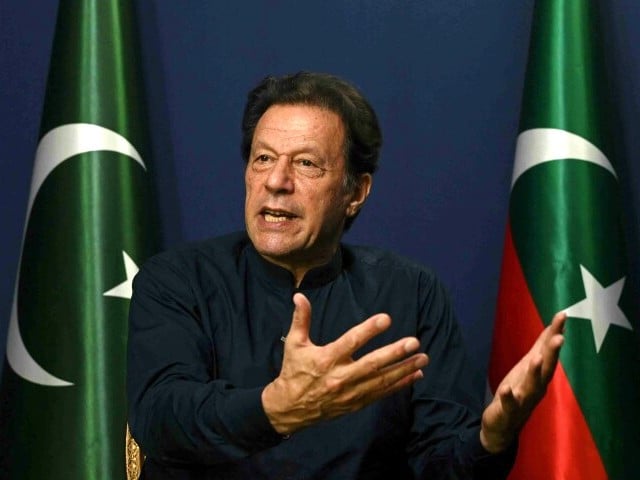Pakistan Tehreek-e-Insaf (PTI) Chairman Imran Khan has declined to appear before a Joint Investigation Team (JIT) investigating the May 9 attack on Lahore’s Jinnah House. In a written response sent through his lawyers, Imran Khan cited grave security threats as the reason for his refusal to appear before the probe body. This article explores the details of Imran Khan’s decision and the concerns he raised regarding security threats, legitimacy of charges, and alternative methods of cooperation.
Imran Khan Cites Security Threats: Imran Khan, through his written response, highlighted the serious security threats he currently faces, which he claimed were already known to the JIT. He referred to an assassination attempt on his life during a public gathering in Wazirabad last year, emphasizing the need to avoid unnecessary exposure. Due to the severity of the security threats, Imran Khan requested to be facilitated at his Zaman Park residence in Lahore for further proceedings of the investigation team, instead of appearing in person. He also raised concerns about potential attacks during public appearances related to the investigation.
Legitimacy and Motivations of Charges: Imran Khan questioned the legitimacy and motivations behind the charges against him, labeling them as “false, frivolous, and politically motivated.” Despite facing a large number of false cases, Imran Khan expressed his full cooperation with the investigative agencies. He stressed his commitment to cooperate fully with the authorities and suggested alternative ways to facilitate his involvement, such as answering a questionnaire or participating via video conferencing.
Former Prime Minister’s Arrest and Cooperation: Imran Khan referred to his “illegal and invalid arrest” by the National Accountability Bureau (NAB) on May 9, underscoring his belief that the charges against him are politically motivated. While Imran Khan’s nominated representatives, Ali Ejaz Buttar and Advocate Naeem Haider Panjutha, appeared before the JIT and submitted his written statement, the JIT refused to accept the response through these representatives.
READ MORE: Collaborative Efforts Between RRMC and PSBA to Boost Pakistan Stock Market
Background of the May 9 Incidents: The May 9 incidents involved alleged vandalism by protestors affiliated with PTI, who vandalized public and state properties and attacked the General Headquarters in Rawalpindi and Lahore corps commander’s residence. The protests erupted after Imran Khan’s arrest in the Al-Qadir Trust corruption case, later renamed the National Crime Agency £190 million scandal. Imran Khan’s subsequent release was ordered by the Supreme Court, and the Islamabad High Court granted him interim bail for two weeks in the National Crime Agency £190 million scandal.
Controversy Surrounding Trials under Military Courts: The decision to try the protesters involved in the May 9 incidents under the Army Act and Official Secrets Act was met with condemnation from local and international rights organizations, including within the ruling coalition. Amnesty International expressed concerns over using military courts to try civilians, stating that it violates international law. The PTI filed a petition in the Supreme Court, denouncing the decision as a violation of constitutional guarantees of due process and fair trial.
PTI Lawmakers’ Response: Following the arrests and rearrests of several PTI lawmakers, including Shireen Mazari, Fawad Chaudhry, Asad Umar, and Maleeka Bokhari, some distanced themselves from the party and condemned the May 9 riots.
In conclusion, Imran Khan’s refusal to appear before the JIT investigating the May 9 incidents stems from the serious security threats he faces. While asserting his commitment to cooperate fully, he raised concerns about the legitimacy of charges and proposed alternative methods of involvement. The controversy surrounding the trials under military courts adds another layer of complexity to the situation. As the investigation progresses, it remains to be seen how the authorities will address these concerns and ensure a fair and transparent process.




